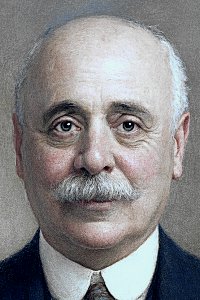Introduction
Born: December 7, 1863, Hackney, London, England.
Died: February 29, 1929, London, England.
Buried: Golder’s Green Cemetery, London, England.

Born: December 7, 1863, Hackney, London, England.
Died: February 29, 1929, London, England.
Buried: Golder’s Green Cemetery, London, England.

John’s father, William West, was an organist and founder of the North-East London Academy of Music. His mother, the self-styled Madame Clara West, was a professional soprano, and his sister, Lottie West, a professional contralto soloist, pianist and teacher.
West was taught at home by his father and received organ lessons from Frederick Bridge, organist at Westminster Abbey.
From 1880–82, he studied at the Royal Academy of Music, where he was taught composition by his uncle, Ebenezer Prout, the respected authority on the fugues of Bach. He gained his Associateship from the Academy in 1898 and passed the Fellowship exam of the then College of Organists (it did not receive Royal
status until 1893).
He held successive organ posts in London at St. Mary’s, Bourdon Street (1884–91); St. John of Jerusalem, South Hackney (1891–97); and St. Augustine’s, Queen’s Gate (1897–1902).
He conducted various choral societies and choirs in London, Reading, Croydon and Warlingham and lastly, the Railway Clearing House Male-Voice Choir. This choir was highly regarded in the early 20th Century, as reviews in The Musical Times reveal. It was famous enough to secure the services of Stanford Robinson as conductor after West’s death.
In 1884, on his twenty-first birthday, he entered the music publishing firm of Novello & Company in London as an associate editor. Following the death of Berthold Tours in 1897, West succeeded to the post of chief editor and adviser. He was following in illustrious footsteps: apart from Tours, the post had been occupied by Joseph Barnby and John Stainer. He stayed at Novello’s for 45 years, of which 32 were spent as chief editor. He retired shortly before his death in 1929.
He was a prolific composer and editor with nearly 500 published pieces to his name. He was a pioneer in the field of editing, especially choral and organ music from earlier centuries. He prepared editions of Bach’s Six Motets and Brahms’ Requiem. He also found time to write an arrangement of Edward Elgar’s Enigma Variations for pianoforte duet.
He was awarded the FRAM in 1919 for his services to music and for bringing distinction on his alma mater.
He collapsed on the stage of Westminster Central Hall after conducting the third item in a concert by the Railway Clearing House Male-Voice Choir. He was rushed to nearby Westminster Hospital where he was pronounced dead. He would have been driven past the twin towers of Westminster Abbey, where it all began some 50 years before.
Biography © 2003 Andrew Houston. Used by permission.